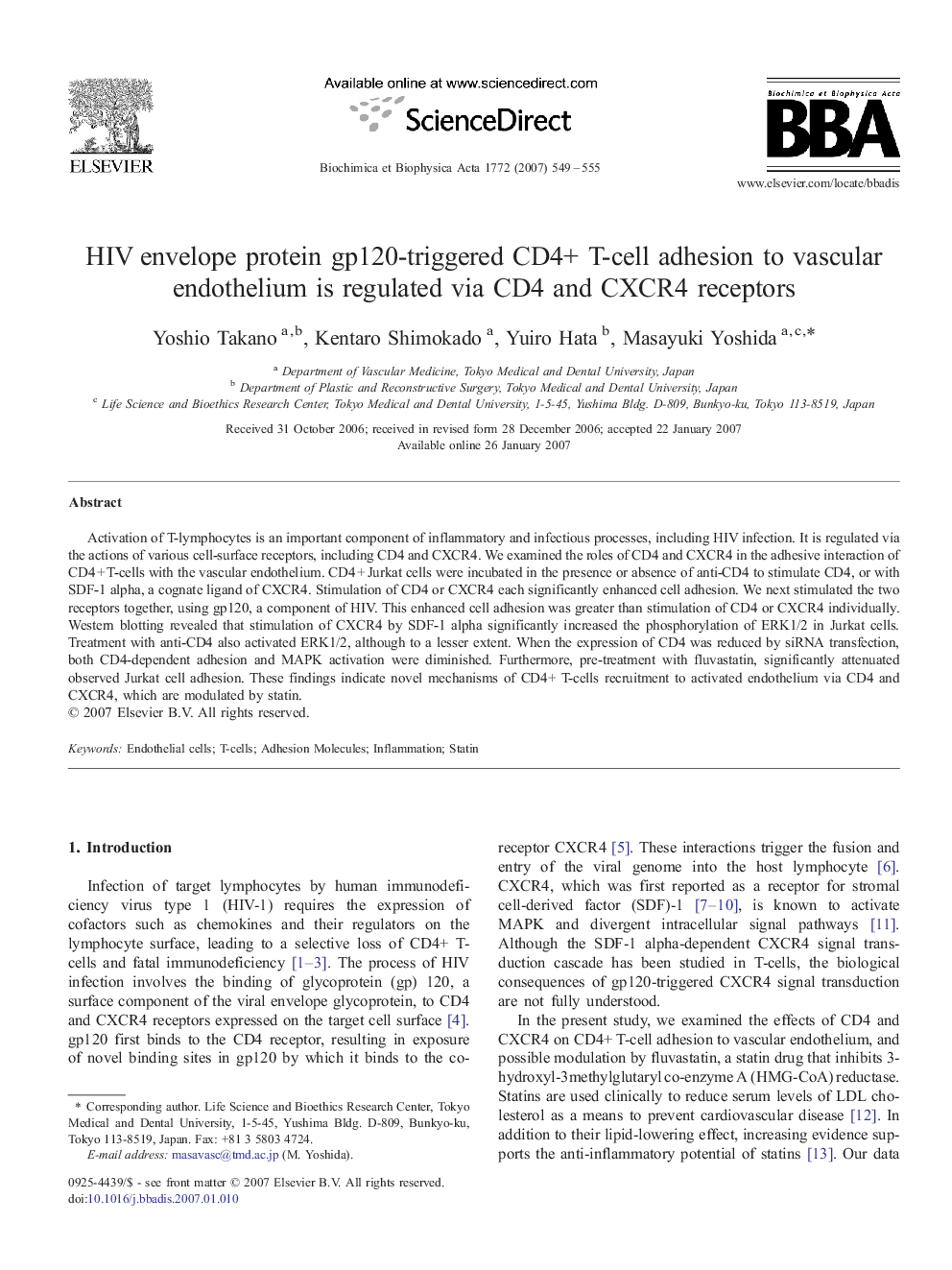| Article ID | Journal | Published Year | Pages | File Type |
|---|---|---|---|---|
| 1905872 | Biochimica et Biophysica Acta (BBA) - Molecular Basis of Disease | 2007 | 7 Pages |
Activation of T-lymphocytes is an important component of inflammatory and infectious processes, including HIV infection. It is regulated via the actions of various cell-surface receptors, including CD4 and CXCR4. We examined the roles of CD4 and CXCR4 in the adhesive interaction of CD4 + T-cells with the vascular endothelium. CD4 + Jurkat cells were incubated in the presence or absence of anti-CD4 to stimulate CD4, or with SDF-1 alpha, a cognate ligand of CXCR4. Stimulation of CD4 or CXCR4 each significantly enhanced cell adhesion. We next stimulated the two receptors together, using gp120, a component of HIV. This enhanced cell adhesion was greater than stimulation of CD4 or CXCR4 individually. Western blotting revealed that stimulation of CXCR4 by SDF-1 alpha significantly increased the phosphorylation of ERK1/2 in Jurkat cells. Treatment with anti-CD4 also activated ERK1/2, although to a lesser extent. When the expression of CD4 was reduced by siRNA transfection, both CD4-dependent adhesion and MAPK activation were diminished. Furthermore, pre-treatment with fluvastatin, significantly attenuated observed Jurkat cell adhesion. These findings indicate novel mechanisms of CD4+ T-cells recruitment to activated endothelium via CD4 and CXCR4, which are modulated by statin.
